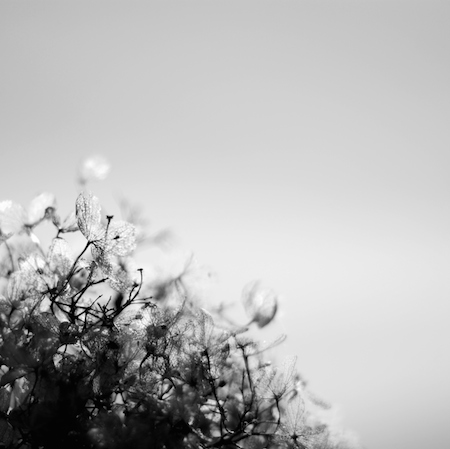| Jul/Aug 2015 • Poetry • Special Feature |
| Jul/Aug 2015 • Poetry • Special Feature |

Photography by Lydia Selk
Using Azalea as a Verb
Its meaning would begin with our grandfather,
though not because of the gardens he tended
all the years of our growing up. To azalea
would not mean to prop up the long neck
of the apple tree, grown too heavy with sour
fruit to raise its head, nor to shoulder the roll
of bubble wrap and mend the cold frames
torn after another winter, not even to raise
a whole tomato in both hands to your mouth
and bite, though we can remember our grandfather
doing all of those things. Verbing azaleawould have more to do with the basement of his house,
the orange concrete floor pocked with hollows
and divots, the open buckets of loamy dirt
he mixed with sand and sterilized by the panful
in the oven, the soil as much a product of his labor
as anything that bloomed from it—the soil
and the serrated knives with blades the length
of our arms he used to keep it from settling,
those knives studding each bucket
and no one telling us not to touch them.Or maybe it would mean playing
our basement games, we sisters and cousins
becoming orphans and runaways,
whole worlds imagined with all the grownups evil
or vanished. This was when our uncle still lived
in the basement bedroom, stacking cans of Skoal
like quarters on the dresser, this was when our mothers
thought that would be the thing that killed him,
so we did too. To azalea: to tempt loss,
then reascend to the kitchen, windows open,
green peppers and ears of corn on the counter,
our grandmother dozing in her chair.